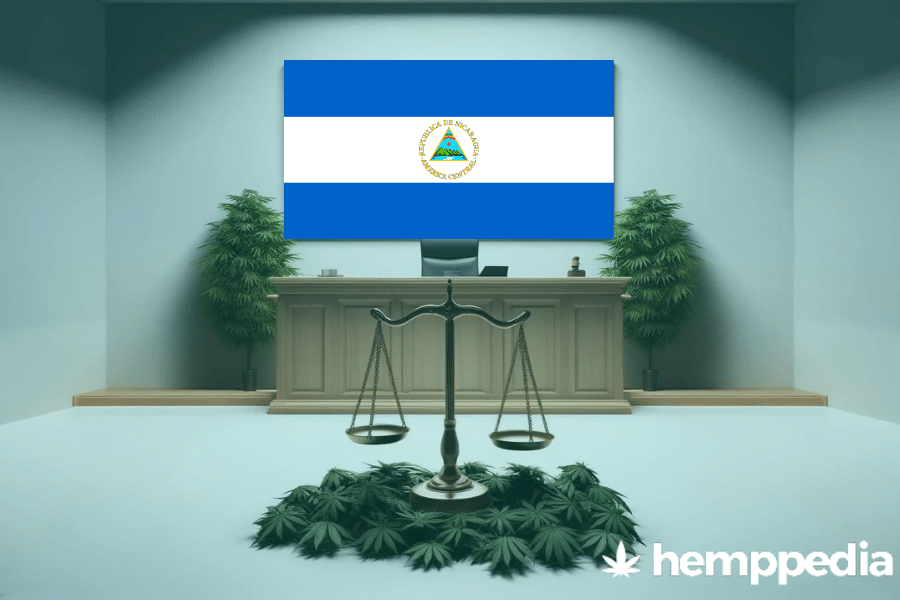TL;DR
The legal status of cannabis in Nicaragua is illegal for both recreational and medicinal use. Possession, cultivation, sale, and distribution are punishable by law. This stands in contrast to the global trend toward decriminalization and legalization. Details about the specific laws and penalties are included in the subsequent sections.
| Recreational | Medical | |
|---|---|---|
| THC | Illegal | Illegal |
| CBD | Illegal | Illegal |
Introduction
Cannabis legislation is a topic of growing significance globally due to shifting perspectives on its usage. Many nations have shifted toward decriminalizing or even legalizing cannabis, citing reasons ranging from medical benefits to arresting the colossal damage caused by the war on drugs. However, the situation in Nicaragua contravenes this trend, where the regulations remain stringent.
Overview of Cannabis Legislation
Legalization refers to the removal or reduction of legal penalties for a defined act, in this context, the use of cannabis. Decriminalization, on the other hand, downgrades the severity of the defined act from a criminal level, generally to a civil one for which fines may apply. The converse is recreational use, which is the use of cannabis for personal enjoyment, understandably subject to numerous regulations. While medical use refers to cannabis utilized for therapeutic purposes administered via a prescription.
State-Specific Legal Details
Legal Status
In Nicaragua, cannabis remains illegal for both recreational and medicinal uses (UNODC). The sale, possession, and cultivation of any form of cannabis are prosecuted under Nicaraguan law.
Historical Context
Nicaragua has maintained staunch anti-cannabis laws for many decades, rooted in a historically conservative stance on drug use and legislation.
Possession and Use
Any degree of possession of cannabis is deemed illegal, with no distinctions made for personal or recreational use. Consumption is also forbidden in Nicaragua.
Cultivation and Distribution
The cultivation and distribution of cannabis are both illegal under any circumstances. There are no existing provisions for licensing requirements, as no legal avenue exists for the cultivation or sale of the substance.
Enforcement and Penalties
The penalties for possession, distribution, and cultivation can lead to imprisonment. Recently, there hasn’t been any leniency or changes in the enforcement practices.
Medical Cannabis
Medical cannabis is not recognized under Nicaragua law, even with a prescription.
Social and Economic Impact
Without legal access to cannabis, the illicit market continues to thrive. This impacts public health and puts pressure on criminal justice resources. However, academic studies and data on the specific impact of the country’s cannabis policies are scant.
Comparative Analysis
Comparatively, other nations in Central America have started to broach the issue of cannabis legalization, pivoting away from the historical ‘War on Drugs’ stance. However, Nicaragua remains consistent in its opposition to cannabis legalization, and possession, cultivation and use continue to be illegal.
Future Outlook and Ongoing Debates
For the foreseeable future, the government of Nicaragua doesn’t show any signs of significant change in its cannabis laws, in contrast to the growing trend in many parts of the world.
Conclusion
In Nicaragua, despite global trends toward cannabis decriminalization and legalization, the legal status of cannabis remains rigidly unforgiving. The current outlook suggests little prospect of changes to the existing laws.





